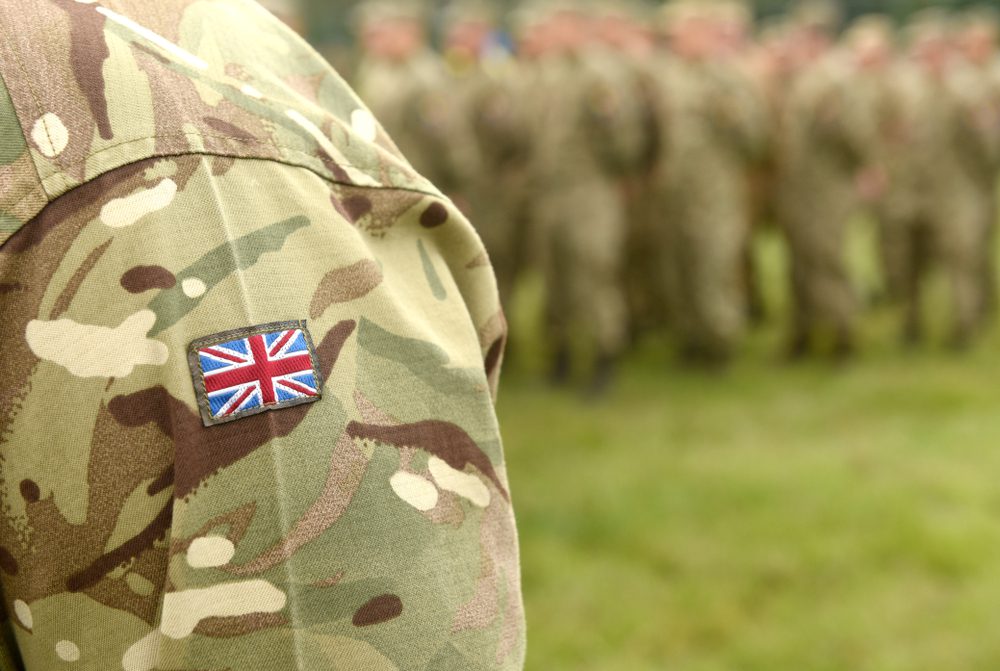
The British Army has “fallen behind its peer group” and should stop “reaching beyond” itself, Tory Defence Secretary Ben Wallace has warned. He told Sky News that the force has been “hollowed out” over the past 20-30 years, during more than half of which time the Conservative Party has been in office.
Mr. Wallace said the weakening of the nation’s defence was partly a result of the world being “predominantly peaceful and stable” since the dawn of the new millennium, although British troops from 2000 onwards have been deployed in Sierra Leone, Afghanistan, Iraq, Libya, and elsewhere. The minister added that a £16 billion boost in defence spending agreed to in 2020 is just “starting … right now.”
Admissions of the nation’s shaky defences should beg the question, how long can Britain continue to support Ukraine at current levels in its fight against Russia? Almost two years before Vladimir Putin announced his “special military operation,” an online war simulation saw the British Army run out of ammunition after just eight days. Now, as the UK sits near the top of the list of countries sending the most military support to Ukraine, having this month confirmed a delivery of tanks, reports are warning that stockpiles could soon run dry.
Mail on Sunday columnist Peter Hitchens wrote in a post on Twitter that the defence secretary’s latest comments point to an “interesting contrast between government machismo over Ukraine and our actual military readiness, which makes Ethelred the Unready look well-prepared.”
Interesting contrast between government machismo over Ukraine and our actual military readiness, which makes Ethelred the Unready look well-prepared. British Army has 'fallen behind its peers and needs investment' https://t.co/ZSuSelb3Ge via @MailOnline
— Peter Hitchens (@ClarkeMicah) January 31, 2023
In July last year, less than five months after the invasion of Ukraine, the UK was already reported to be buying howitzers from a third party, possibly a Belgian dealer, to send to Kyiv due to its own stockpiles being too low. One Western advisor told the Financial Times:
The received wisdom has long been that the West will never fight an industrial war again. As a result, almost nobody has kept up capacity to ramp up national production of key equipment.
Alex Cresswell, chief executive of defence company Thales UK added that the “UK has been running down [defence] stockpiles but not investing sufficiently enough to avoid obsolesce[nce].”
American generals have been critical of the UK’s declining defence capabilities, with an unnamed one this month telling Mr. Wallace that the British Army is no longer regarded as top-level, but their own forces are suffering from similar—if currently less significant—deficiencies. Washington ranks top in terms of support for Ukraine and, since late last year, has seen its military storage become “uncomfortably low,” one defence official told The Wall Street Journal. They added that “it is not at the level we would like to go into combat.” Brad Martin, director of the Institute for Supply Chain Security at the Rand Corporation, highlighted in a comment for the paper the risks such depletions could pose for the West. He said:
Nations assume the risk that war is not going to take place, and have the assumption they can react when they need to. It simply might not be true that you can ramp up [production quickly].
The British government has pledged to spend at least £2.3 billion on supporting Ukraine this year, though news that the UK’s economic growth will lag behind that of all other developed countries—including Russia—over the same time period could also soon prompt questions over the sustainability of Number 10’s position. One thing that is likely to remain unchanged is Ukraine’s need for continued and increasing support in a conflict which, according to the Royal United Services Institute, has “proven that the age of industrial warfare is still here.”
The UK ministry of defence refused to comment on the implications of Mr. Wallace’s words on future support for Ukraine.
